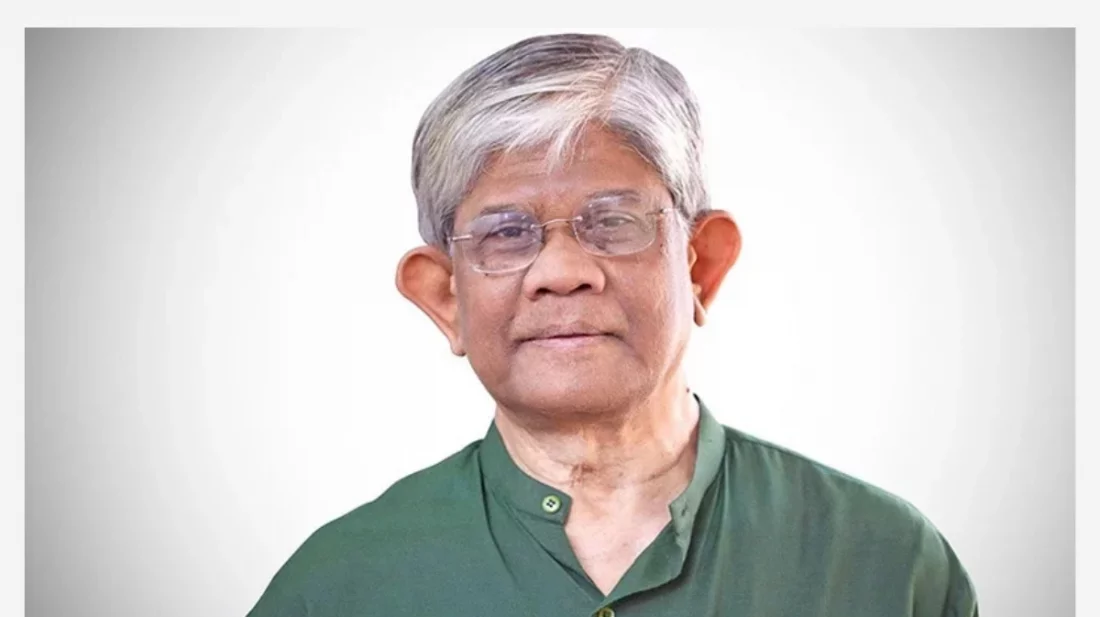Kamala Harris or Donald Trump – many analysts believe that the outcome of the U.S. election could become a significant factor for Bangladesh as well.
The discussion has intensified, particularly surrounding a tweet by Republican candidate Donald Trump.
Bangladesh’s Chief Advisor Dr. Muhammad Yunus has historically had good relations with American politicians, especially Democratic leaders.
Trump vs. Harris: What could each of their victories mean for Bangladesh? How much of a factor might India be in this? Will Dr. Yunus’s relationship with U.S. politicians play any role in this context?

What Could Happen if Trump or Harris Wins?
Democratic administrations worldwide tend to emphasize issues like democratic processes and human rights. Experts believe that if Kamala Harris or other Democrats come to power, Bangladesh could enjoy smoother cooperation in trade and business.
According to Michael Kugelman, a South Asia expert and writer at the Wilson Center, a Harris victory would likely maintain and align with the current U.S.-Bangladesh relationship. However, a Trump presidency could bring a different dynamic.
Kugelman notes that Bangladesh is one of the key South Asian countries where the U.S. election results might significantly impact bilateral relations.
“I don’t believe Donald Trump would support the current framework, where the U.S. aids Bangladesh to ensure its stability through development, reform, and other support. Trump and his administration may not be interested in fostering a relationship that emphasizes U.S. assistance to Bangladesh,” Kugelman told BBC Bangla.
Former Bangladeshi ambassador to the U.S., M. Humayun Kabir, thinks that if Trump becomes president, America’s humanitarian aid globally could decrease. For Bangladesh, this raises uncertainties, particularly regarding the Rohingya issue, as a large portion of UN assistance to Rohingya refugees in Bangladesh comes from the U.S.
Donald Trump has not been seen as a traditional U.S. president in American history. His approach to foreign policy brings with it a sense of unpredictability.
Typically, even when there is a change of president in the U.S., foreign policy does not undergo significant shifts due to the robust role of U.S. institutions. Professor Mehnaz Momen from Texas A&M University mentions this structural strength.
“But we’ve seen Trump in some campaigns talking about changing institutions. If that happens, it could be a major shift,” Momen adds. However, she also believes there is some doubt about how feasible this would be or its impact on foreign policy.

Trump’s Tweet and India
Recently, a tweet by Donald Trump regarding minority oppression has sparked discussion in Bangladesh. However, analysts view this less as a future policy stance and more as a political tactic to attract Hindu voters in the U.S. election.
Press Secretary Shafiqul Alam, on behalf of the Chief Adviser of Bangladesh’s interim government, suggested that from the perspective of U.S. domestic politics, “Some lobby groups might have influenced this statement.”
There’s speculation that these lobby groups could imply either the Awami League or India.
While the U.S. initially took a strong stance on the credibility of Bangladesh’s recent elections, India’s support for Bangladesh’s government eventually became a key factor.
“India has played a role here before, and we can reasonably infer that they may also have some influence on Trump’s tweet,” said former ambassador Humayun Kabir.
Although Narendra Modi raised concerns about minority issues with the U.S. in an August phone call, this did not seem to carry much weight. Even though Kamala Harris is of Indian descent, it’s unlikely that the Democratic stance will shift on this matter.
Donald Trump, however, has a favorable relationship with Narendra Modi. In September, he even praised Modi as a “wonderful person.”
Kabir suggests that if Trump wins, India might seek to exert influence over Bangladesh’s bilateral relations, adding, “If relations with India aren’t amicable, there’s a risk of negative influences from the Indian side.”
Many note a U.S. foreign policy tendency to view Bangladesh through an Indian lens. Given Trump’s preference for individual-centered relationships, analysts like Mehnaz Momen believe he would likely support leaders like Vladimir Putin and Narendra Modi. Thus, a Trump presidency might elevate India’s influence in Bangladesh.
However, Michael Kugelman believes that if Kamala Harris wins, the U.S. could be more aligned with Dr. Muhammad Yunus’s perspectives, potentially increasing U.S.-India differences on Bangladeshi issues.

Dr. Muhammad Yunus’s Connections
Recently, the Press Secretary of the Chief Adviser in Bangladesh stated that Dr. Muhammad Yunus has good relationships with senior leaders from both the Republican and Democratic parties, and he has friends in both camps. Therefore, the outcome of the U.S. election is not expected to affect U.S.-Bangladesh relations.
However, Michael Kugelman suggests that while the Bangladeshi government may anticipate no impact, the reality could differ if Trump wins.
“Yunus has criticized Donald Trump in the past, especially when Trump was elected in 2016, and they hold differing political ideals,” he told the BBC.
In 2016, while speaking at HEC Paris, a French university, Dr. Yunus reportedly described Trump’s victory as a “solar eclipse” or a dark time, according to HEC’s website.

U.S. Interests in Bangladesh
The United States has various interests in Bangladesh, spanning trade, strategic, and geopolitical areas. The U.S. often describes itself as a partner in Bangladesh’s development.
“Given the U.S.’s increased focus on this region in a geopolitical context, Bangladesh, with its large and active population, is strategically significant,” says Mr. Kabir.
Bangladesh’s location as a connecting point between South and Southeast Asia and its access to the Bay of Bengal are also key factors of geopolitical interest.
“We’re recently considering diversification in military resources, which could align with U.S. interests in selling arms,” adds Mr. Kabir, noting that this could further engage U.S. interest.
The U.S. sees Bangladesh as an emerging market, with business interests in sectors like power plant equipment, Boeing aircraft, and LNG supply, Mr. Kabir explains.
Moreover, many Bangladeshis reside, study, and work in the U.S., creating a significant people-to-people connection. Technological aspects also link the two nations, as the U.S. benefits from the use of American products like credit cards and computers in Bangladesh.
While foreign policy typically prioritizes interests based on relations with neighboring and global powers, the unique relationship between the U.S. and Bangladesh this time also includes Dr. Yunus’s connection, which may influence future relations. Thus, multiple factors, including these evolving dynamics, are likely to shape the future of U.S.-Bangladesh relations.
Source: BBC Bangla




